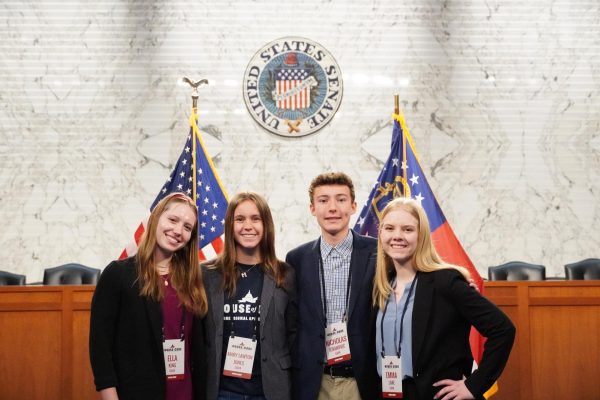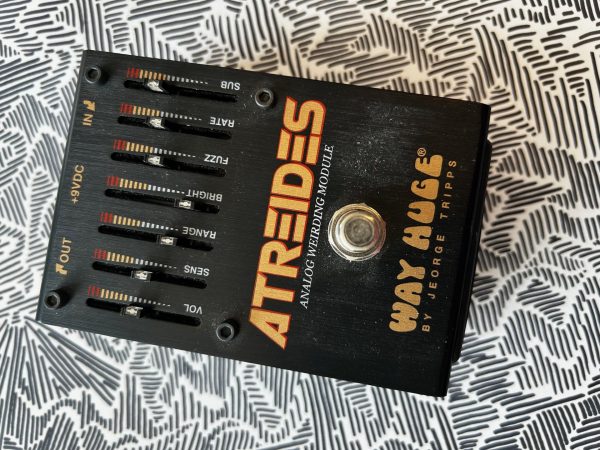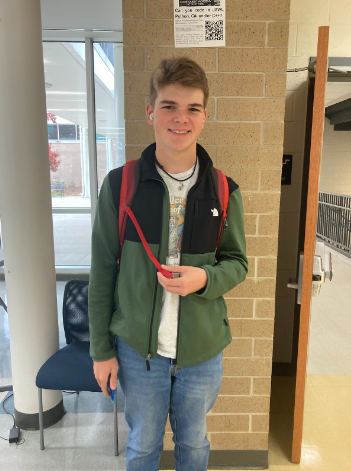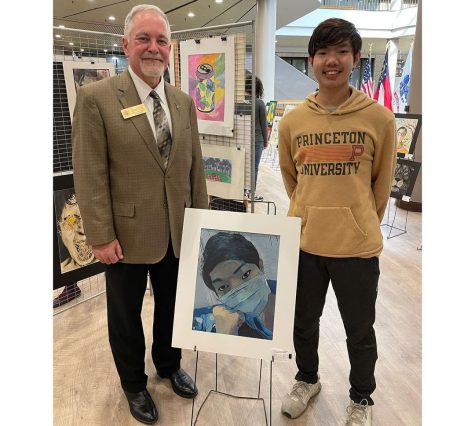Chamblee Seniors Cast Their Votes in this Year’s E-SPLOST Election
As many seniors turn 18 during the course of their last year of high school, they become eligible to vote in elections. While many people are mainly looking forward to the presidential election that occurs every 4 years, there are also a number of smaller elections that occur throughout the course of the year. These elections are often localized and have to do with issues throughout the city or state.
“I voted on City Council, which obviously is important because that has an effect on the whole city plan. And then the other thing we were voting about was funding for education, which also is very important to me because obviously, I attend a public high school. So funding for education was important to me,” said Stiles Logan (‘22).
E-SPLOST, or Education Special Purpose Local Option Sales Tax, will implement a small sales tax on goods in DeKalb County. The money raised will go to education projects relating to building new schools and renovating current ones, as well as buying equipment for schools. This year, it was passed with an 81% approval vote.
“Honestly, it was just the school education tax that I was really worried about. That was kind of the big-ticket item on the ballot. So it’s just trying to make sure that that tax is gonna pass so that we can fund schools,” said Jeremy Carlson (‘22).
While the tax may seem unimportant to some, it was very important to the seniors who voted for it, as their schools would be the ones benefiting from the results of the election if the vote passed. Seniors being able to put their opinion forward resulted in increased approval votes.
“Voting is definitely an important part of being an adult and showing that you care about your community because unless you vote, you don’t really have a voice. I’d say that voting is the best way to express your opinion,” said Carlson.
For many seniors, this was the first election that they were able to participate in.
“It was interesting voting for the first time because it’s always been an adult thing in my head. So it was a new experience and it was something very interesting to be an adult who gets to vote,” said Logan.
A few students even worked at polling places, where they learned more about the legislative process.
“I worked at […] Dunwoody [Elementary School] Upper Campus, and this year I trained to be a check-in clerk. So I would be near the Poll Pads and get people’s licenses and check them in and give them a green card so that they can go and vote,” said Joanna Louis-Ugbo (‘22).
Being able to play the important role of working the polls in the E-SPLOST votes helps high school students learn how elections work and gives them further insight on voting in elections in the future.
“I personally want to go into politics, and so it’s like a good start, even though it’s something really small. Nothing is too small when you’re trying to get connections and build up your reputation. So I think that it was good for me to work the poll so I can get a taste of how it is on the other side of the legislative process,” said Louis-Ugbo.
As students approach 17 and a half years of age, they are often encouraged to register to vote. This allows them to be able to participate in the next upcoming elections as soon as they are 18. Many seniors at Chamblee register to vote as soon as they can so they are able to participate in the next big election.
“I’m very excited to vote. I registered as soon as I turned 17 and a half. So I’m very excited to vote next year,” said Louis-Ugbo.
Voting usually gets the greatest spotlight during a presidential election. The next presidential election, which will take place on November 5, 2024, will likely have an increased number of voters due to the rapid encouragement of voting and registration at a younger age.
“[I’m looking forward to voting], especially when the presidential election comes up. I’m very excited to voice my opinion on a bigger stage,” said Logan.
As elections progress throughout the year, there is no shortage of young voters who are ready to put in their vote to express their opinions and make a difference.
Your donation will support the student journalists of Chamblee High School Blue & Gold. Your contribution will allow us to print editions of our work and cover our annual website hosting costs. Currently, we are working to fund a Halloween satire edition.

Millie Gotsch is a junior, and this is their first year on the staff. In their spare time, they love to play video games, re-watch the same movies over and over again, and take naps. In 5 years, they hope to be in a college of some sort, hopefully still taking naps. "Scott Pilgrim Versus The World" encapsulates their highschool experience.











E. Avett • Nov 16, 2021 at 12:23 pm
Good for you! This is such a positive article about voting! The more information given on how and where to register and vote, the better!!